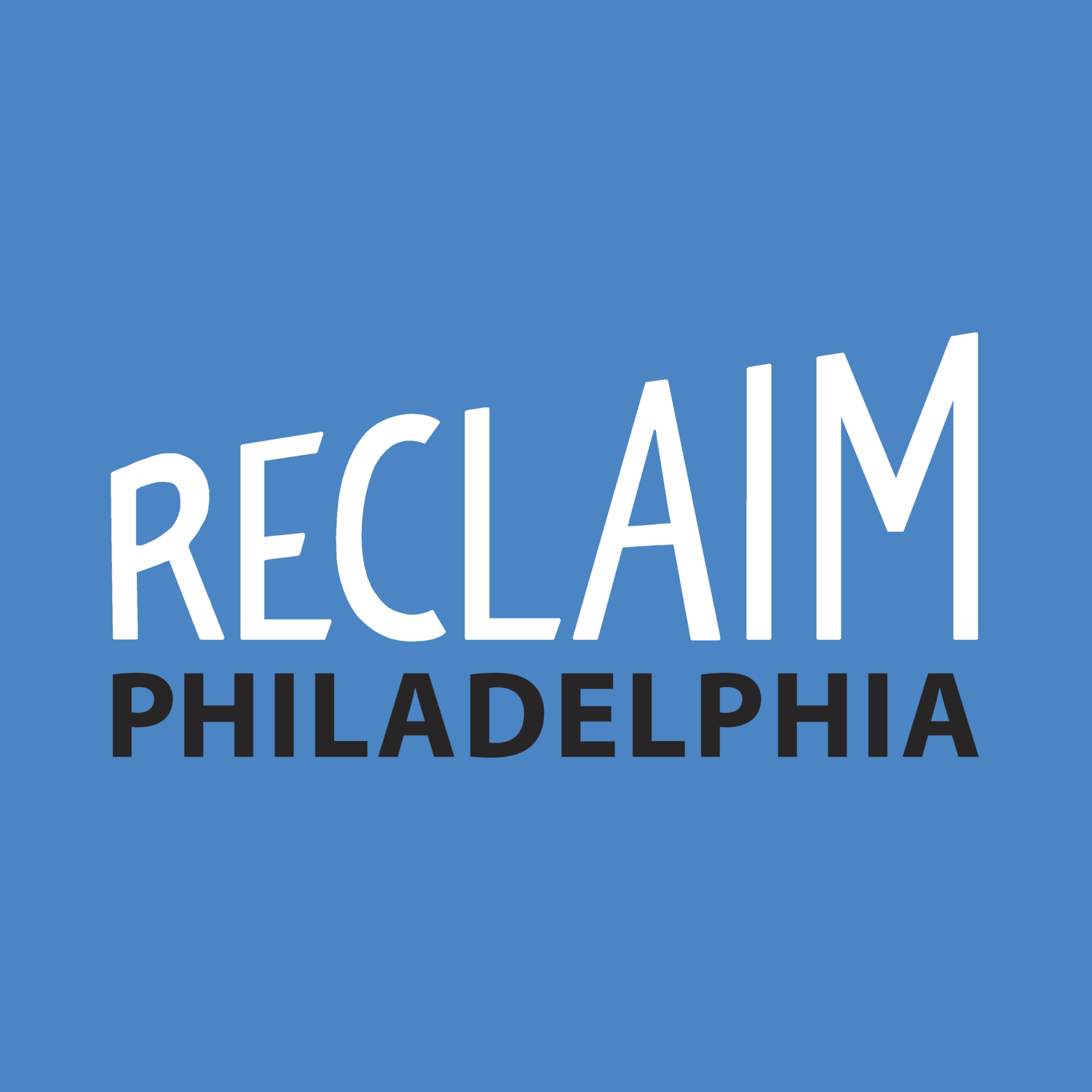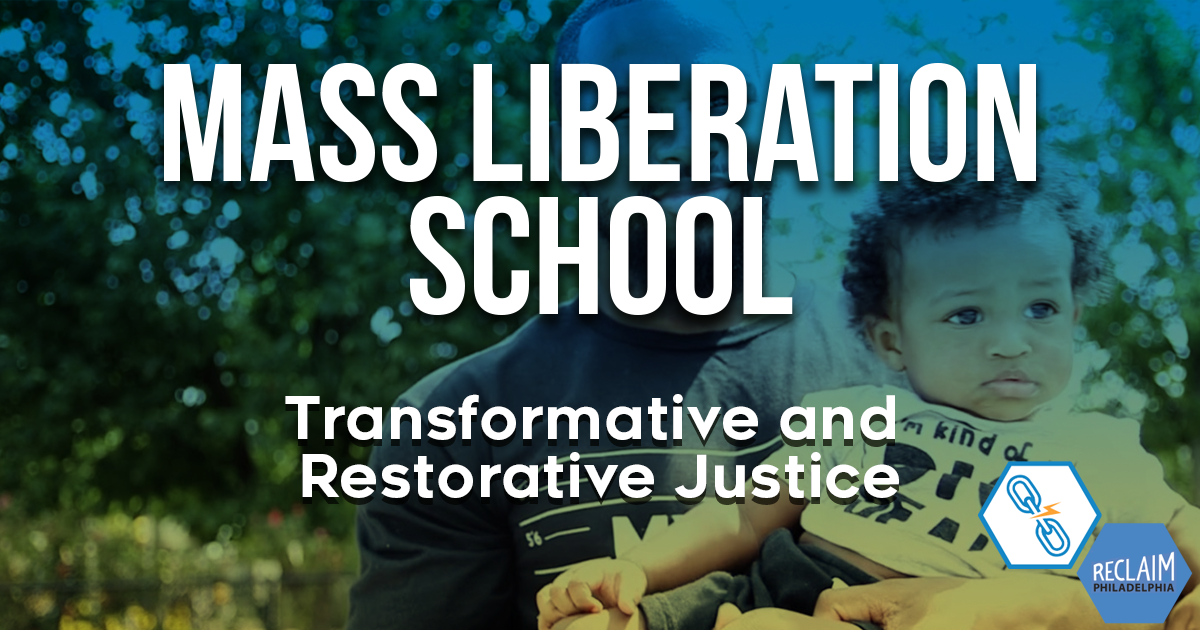MASS LIBERATION SCHOOL: WEEK 6 Transformative & Restorative Justice
Facilitator: A’Brianna Morgan, Reclaim Philadelphia
“Our responses should be survivor-centered, accountability-based, safety-driven, and racially equitable. Developing solutions aligned with those principles will require a fundamental realignment in our values and practice. It will require that we demand and build a country where fewer people are harmed by violence and fewer people are incarcerated; place regard for human dignity at the center of policies and practices; and prioritize survivors’ needs for healing, safety, and justice.” -- Danielle Sered, Until We Reckon
This week we will build on the lessons over the last two weeks: how do we respond to our communities without relying on the carceral system? We will continue to have deep discussions about violence and accountability, and continue imagining what healing and justice can look like for all people impacted by harm—including survivors, family and other loved ones, and people who cause harm.
Transformative Justice and Restorative Justice are key parts of an abolitionist future. We will explore the history of these practices and explore real-life situations where these have been applied.
Helpful Resources:
Community Organizers Address Sexual Violence Without the Carceral System
How is Transformative Justice Different from Restorative Justice?
Beautiful, Difficult, Powerful: Ending Sexual Assault Through Transformative Justice
You Can’t End Violence with More Violence: Shifting from Incarceration to Accountability
The Practices We Need: #metoo and Transformative Justice Part 2 (End of the World Show)
Interview: Mia Mingus of the Bay Area Transformative Justice Collective
Film: Hollow Water
Book: Beyond Survival
Book: Until We Reckon

